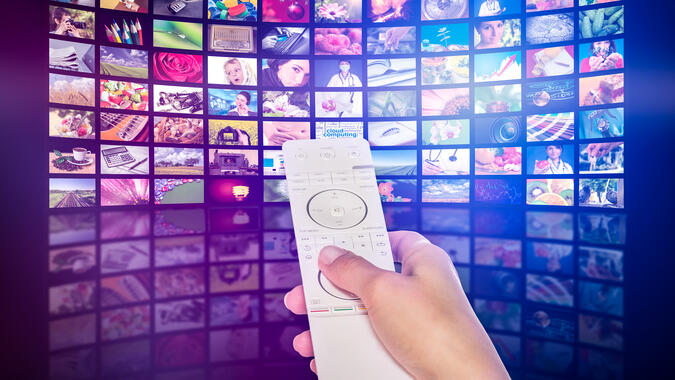
The XFL and AAF Join the Pro Football Community
- Published
- Jan 30, 2019
- Share
A pair of new professional football leagues will launch over the next two years. In this episode of The Full Count, we look at what could make the XFL and the AAF an attractive business opportunity, broadcast options, financial backers, sports gambling and other factors that hope to give these new leagues staying power and not just be one-year wonders.
Transcript
Dave Plaskow: Hello and welcome to The Full Count. I'm your host Dave Plaskow. We will examine the everyday business and finance issues faced in the sports, entertainment and media sectors. Today we're discussing the reboot of the XFL and the new Alliance of American Football League.
eisneramper: Hi Dave. It's great to be back.
DP: We've made it to our second episode of The Full Count and they haven't thrown us off the air yet, so we must be doing something right
eisneramper: So far, so good. Let's hope this ride continues.
DP:Indeed. It looks like the XFL, Vince McMahon's football league, is getting a second life starting in 2020 with eight teams. So to take our listeners down memory lane a little bit, the XFL was a joint venture between NBC and the World Wrestling Federation and it lasted for one season in 2001. So why do we think the second time's a charm for the XFL?
eisneramper: The problem with the XFL was that it viewed itself as a competitive product to the NFL by establishing certain rules that Mr. McMahon viewed as issues in the NFL and what he thought would attract a greater audience. I mean obviously the proof's in the pudding there. It wasn't the case. And I believe for the XFL to be a success this time around they should view it as more of a developmental league or one that's going to be played outside of the NFL season and establish a greater fan experience instead of an alternative to the NFL. But I believe that they will have competition as another league is ahead of them right now.
DP:Oh, what is that other league?
eisneramper:The other league is a new Alliance of American Football League or what's known as the AAF. They'll begin playing their games in February of 2019, which is a year before the XFL begins and right after this year’s Super Bowl. They have immediately set up the AAF as more of a developmental league with the greatest attraction being players having an opt-out clause embedded in their contract to go to the NFL.
DP: Okay. So tell us a little bit more about the AAF. Why is it an attractive business opportunity for football?
eisneramper:I think there's different factors that will make the AAF a better business opportunity. First, it would be the current lack of a developmental league. All the other U.S. major sports leagues, the NBA, the MLB and the NHL all have their own developmental leagues to promote players. They're refined their games. But it's been weird, honestly, that the NFL has never established their own developmental league. I think doing that will promote more players and get more players in the pipeline. Each year there are tons of former college players who are drafted but are looking to further their careers and don't have that opportunity. Why the AAF is also going to be successful, in my opinion, is that football is king in the south and the AAF has strategically set up there initially 8 teams to play in larger cities in the south such as Texas, Georgia, and Alabama. College football, the SEC is the most powerful football conference, which is players coming from the south. I believed them focusing in on these cities and fan bases will allow the AAF to not only serve as a developmental league but be a new exciting football product for these southern communities. They selected these markets that don't currently have an NFL team, so they're avoiding that direct local competition and those corporate fan dollars but who still have a passion for football
DP: There are some good football minds behind this aren't there?
eisneramper:Correct. The last point I would say is that the AAF did a great job in its executive structure. Their former NFL players and NFL personnel people headed by Bill Polian, Troy Polamalu and Justin Tuck, and not only is it just the executives that are serving in the AAF, but it's as coaches as well. And the coaches, the most prominent being Steve Spurrier who was probably one of the best college coaches in the land. So now you're getting someone like that who is going to promote development of its players and getting to work with these kids.
DP:Tell us about the, the broadcast options for the AAF.
eisneramper:The AAF has a broadcast deal with CBS sports. They will air at least one game per week. But the inaugural game and the championship game will both be played on CBS. The league was fortunate enough to get veterans sportscasters such as Spiro Adidas, Trent Green and Tiki Barber to do one of those initial games that'll air on CBS, which is really good because it's a good draw for the league having those bigger names. But the most prominent thing is the league has developed a mobile app that will also offer live streaming for all its games. This is interesting because the AAF approach is more to see their tech platform stream these games instead of going to cable television.
DP: The original XFL was backed by the World Wrestling Federation and NBC, so they had some deep pockets there. Who is backing the AAF financially?
eisneramper: Some of the biggest name you'll see there are from the tech world. You'll see with all the individuals that are backing them and you'll see they all have more or less have a tech background. But the AAF will operate as a single entity and all the teams will be owned and operated by the league. This is different from the NFL. As the NFL has teams that are owned and operated by individual owners. The most prominent investors in the AAF include Peter Thiel. He was one of the co-founders of PayPal, the Churn group, which owns Barstool Sports and as a media and entertainment investor. Jared Allen, who was a former NFL player and Keith Rabois who is a technology entrepreneur. So you can see all these investors in the AAF are interesting as they all bring to the table a good mix of technology and entertainment backgrounds, which could aid in how the games are being broadcasted through the use of cell phones and other implications such as sports betting.
DP:What about the player contracts in the AAF? I'm guessing you're not going to see the seven-figure deals and the guaranteed contracts and so forth.
eisneramper: Yeah, you're definitely not going to see those large dollars, but I believe the compensation structure will be pretty worthwhile for them. Players are expected to get three-year non-guaranteed contracts worth $250,000, plus health insurance with that previously mentioned opt out clause to go to the NFL. And speaking to one of my friends, Jack, who is currently in training camp with the Birmingham Iron. The players are actually receiving full health insurance, which is amazing considering that the NFL is the only other football league that offers that to its players. This is a great benefit considering that football is such a physical sport and having this health insurance is huge. And these contracts will mirror what the XFL is expected to provide to its players, but the AAF is obviously getting this done a year in advance with the same compensation structure, and just to throw in a nugget, the NFL practice squad players receive around $130,000 for its season, so you can really see that the AAF is providing a good salary incentive to its players.
DP:We all know people love buying sports merchandise, jerseys, hats, so on and so forth. I would imagine that there'd be some good licensing opportunities with both new leagues.
eisneramper: There'll definitely be some licensing merchandising opportunities for both leagues. I'm sure everybody remembers the, “He Hate Me” jerseys from the XFL launch. So they will look to brand there. I think the AAF, focusing in on the cities that don't have NFL teams, will really allow them to tap into new fan bases that don't have NFL teams. That could lead to additional spending on AAF merchandise, since there's no NFL team where maybe they want to wear the hats are jerseys. The XFL is going to larger cities that might have NFL teams already, but will, in most instances, have larger disposable income and could spend more on XFL merchandise.
DP: He Hate Me! We all loved him. Funny how you mentioned sports betting as in our last podcast we talked about legalized gambling in sports, so it seems there might be somewhat of a marriage here.
eisneramper: Absolutely. I think that's what the AAF is banking on here. They have had a partnership with MGM when MGM made an investment into a tech platform. MGM also did similar deals with the NBA, MLB NHL, but this one's different because of the fact that this one's going to allow more or less in-game betting. Whereas the MGM arrangement with the MBA, NHL, was more for trademarks data and stuff like that. The AAF has built a gambling product that will allow someone to watch the game on its app, but also place bets on the same screen. Historically, sports betting was geared toward point spreads and the money line, but in-game betting will allow for a constant stream of variables where you can bet on touchdowns, completions, interceptions, sacks, the end-of-the-quarter score—and any other data point you can think of. A successful mobile, real-time fantasy sports platform would give the AAF a head start for that kind of in-game wagering, which is more prominent in Europe versus America. This is just another example of how sports betting can be integrated to enhance the overall fan experience. Another thing I was talking to my friend about it, who I mentioned before, is that they're trying to transition away for players to get more of a compensation incentive in the AAF to see who they're betting on. So if you're betting on this specific player, they want to add more of incentive for that player to then get more compensation related to that.
DP:As I recall from the last podcast, you really emphasized the fan experience. That was really the driving force behind a lot of this. Well, let's bring it a little closer to home to what you do and what EisnerAmper does. What would be something that a budding sports league would come to you for?
eisneramper:Well, the first thing that comes to mind will be valuation work. As I mentioned earlier, all the teams are owned and operated by the AAF. So if the league expands in future years, passes eight current teams, it could really rely on an accounting firm to perform valuation services or due diligence services in order to assess the fair value of these teams and also due diligence services on the potential owners. Down the road, the league might decide that they want to sell these team assets to individual investors, which would require evaluation or due diligence by the prospective investors. As I mentioned earlier, there are quite a few prominent investors in the AAF. Thus, I would expect that if the AAF succeeds, there will be quite amount of valuation in due diligence work required.
DP: Overall, what do you think. Are the XFL and the AAF one-season wonders, or do they have some staying power?
eisneramper:Well, I'll say that the NFC and AFC championship games in the NFL kind of gave them a little bit of juice given that there were so many missed calls in the game. There were people complaining about the rules and stuff like that. So I think that AAF is coming at a good time. But just like the initial XFL, the AAF has been designed as a compliment instead of a way to challenge the NFL, which I think is a good thing because it will keep all these football fanatics hooked on watching football during the NFL off-season. As I mentioned before, it starts right after the Super Bowl. So if you're watching the Super Bowl, you only have to wait one week in order to get your football fix. And I think the vision of the AAF addresses a huge consumer desire of more football while optimizing sports gambling, which is one element that figures to boost the fan experience and keep fans engaged.
DP: Thanks for this information. It's very interesting and it's very timely.
eisneramper:Thanks for having me.
DP:And thank you for listening to The Final Count as part of the EisnerAmper podcast series. Visit eisneramper.com for more information on this and a host of other topics, and join us for our next EisnerAmper podcast when we get down to business.
Also Available On
Contact EisnerAmper
If you have any questions, we'd like to hear from you.
Receive the latest business insights, analysis, and perspectives from EisnerAmper professionals.










